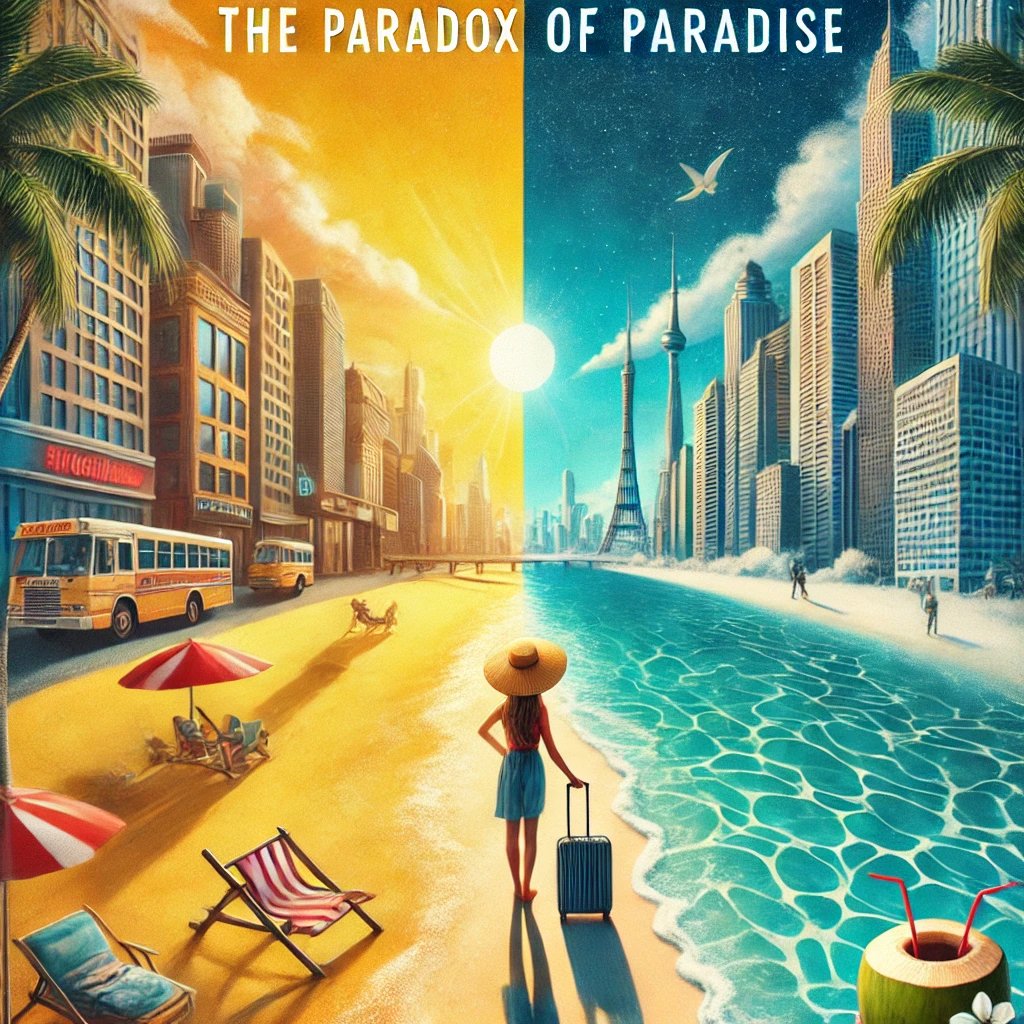The Paradox of Paradise: Why Vacations Make Us Happy (and Why They Might Not Last)
Picture this: a sun-drenched beach, a cocktail in hand, the soft hum of waves caressing the shore. This idyllic image fuels our daydreams as we grind through nine-to-five routines, counting down to the precious two or three weeks of annual leave we call vacation. But here’s the kicker: somewhere, someone lives in that postcard-perfect paradise year-round, and they’re likely scrolling through Instagram, longing for a weekend in a bustling city. The grass, or rather the sand, is always greener on the other side.
3/24/20253 min read


The Allure of the Temporary
The magic of a vacation lies in its temporariness. Psychologist Daniel Kahneman, in his book Thinking, Fast and Slow, discusses how our memories shape happiness. He points out that we derive immense pleasure from peak moments—those thrilling, unique experiences—and the ending of an event. Vacations offer both: the exhilarating escape from routine and the bittersweet farewell that heightens their value in hindsight.
When you spend 48 weeks of the year tethered to deadlines, the mere thought of escaping to a tropical haven becomes a psychological balm. The countdown itself becomes part of the joy, a light at the end of the tunnel. This phenomenon, known as anticipatory happiness, explains why planning a trip can sometimes feel as rewarding as the trip itself.
But what happens when the vacation doesn’t end? Does paradise lose its charm when it becomes home?
Living in Paradise: The Hidden Side
Let’s consider those who live in our dream destinations. Take a Maldivian dive instructor or a Hawaiian tour guide. Their lives might seem enviable—crystal-clear lagoons as their “offices”—but to them, it’s just life. The ocean becomes background noise, the sunsets predictable. Psychologists call this hedonic adaptation: our ability to normalize even the most extraordinary circumstances.
This explains why locals in Venice might loathe the gondolas clogging their canals or why Parisians often avoid the Eiffel Tower. Living amidst beauty doesn’t guarantee perpetual awe. In fact, it might lead to a craving for contrast. A snow-covered Swiss Alps resident might long for sandy beaches, just as a beach-dweller might yearn for urban hustle.
The Happiness of Contrast
Vacations provide a crucial rupture in our daily monotony. As Alain de Botton writes in The Art of Travel, “Journeys are the midwives of thought.” By stepping out of our routines, we gain perspective, recharge, and return with renewed energy. This disruption—from stasis to motion—fuels our happiness. It’s not just the where of travel that matters, but the change it represents.
Imagine if every day were a holiday. Without contrast, the very concept of “getting away” would collapse. The charm of sipping coconut water on a beach lies in its rarity. Turn it into your daily ritual, and soon you might find yourself craving...a cappuccino in a rainy European café.
Can Travel Alone Bring Happiness?
Does this mean happiness hinges on vacations? Not necessarily. Studies suggest that meaningful relationships, purposeful work, and a sense of community contribute more to long-term happiness than transient pleasures. Travel can amplify joy, but it’s not a substitute for a fulfilling life.
Moreover, the rise of the digital nomad lifestyle has complicated the equation. For many, the ability to work from paradise blurs the lines between vacation and routine. Yet, even these wanderers often admit that constant travel can lead to burnout. The novelty wears thin without anchors—a home, a community, a place to miss.
The Wisdom of Moderation
So, how do we navigate this paradox? By embracing balance. Instead of idolizing vacations or envying those who seem perpetually on holiday, we can cultivate micro-escapes in our daily lives. A weekend hike, a new hobby, or even a staycation can inject novelty and joy without requiring a passport.
As Oscar Wilde quipped, “To live is the rarest thing in the world. Most people exist, that is all.” Perhaps the goal isn’t to chase perpetual vacation but to live in a way that makes ordinary days extraordinary.
A Personal Reflection
As a journalist constantly on the move, I’ve experienced both extremes: the thrill of discovering new places and the yearning for familiarity. I’ve found happiness not in the length or luxury of a trip but in its essence. Whether exploring a bustling market in Marrakech or sipping coffee in my hometown, the key lies in presence and appreciation.
Advice for Readers
Next time you plan a vacation, savor the anticipation, and let the trip inspire your everyday life. Instead of longing for endless holidays, ask yourself: how can I bring a slice of that joy into my routine? Maybe it’s as simple as watching the sunset, wherever you are.
Because the secret isn’t in where you go or how long you stay. It’s in how deeply you live—both on vacation and at home.
Itineround
Discover itineraries and maps of world cities.
email - itineround@gmail.com
© 2024. All rights reserved.